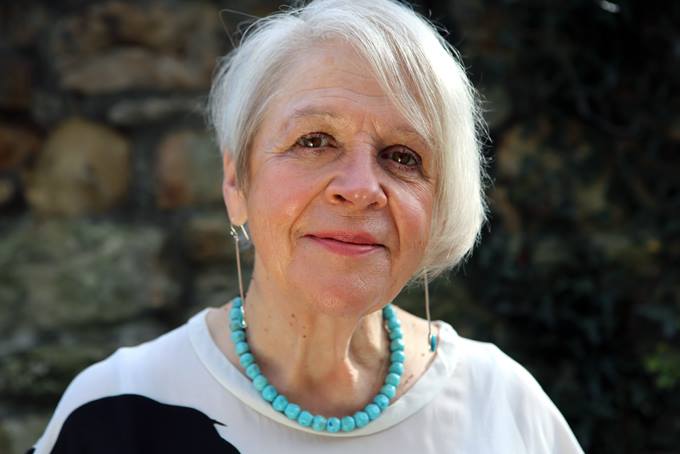Learn about the history of the Palestinian struggle for freedom, equality and justice by exploring major events in the history of their oppression on this day of the year.
2 September
 NATIONAL POET ENDORSES CULTURAL BOYCOTT OF ISRAEL
NATIONAL POET ENDORSES CULTURAL BOYCOTT OF ISRAEL
On this day in 2012, Scotland’s national poet (‘Makar’) Liz Lochhead explained her support for the cultural boycott campaign against Israeli dance company Batsheva. “I was glad to join other Scottish artists and writers in signing a letter protesting the appearance of the Israeli Batsheva Dance Company at the Edinburgh International Festival this week. Why? Because I have been profoundly changed by what I witnessed and experienced first hand during a short trip with some other poets and singers to Palestine this June…”
الشاعرة الوطنية تؤيد المقاطعة الثقافية لإسرائيل
2 سبتمبر
في مثل هذا اليوم من عام 2012، أوضحت الشاعرة الوطنية الأسكتلندية (ماكار) ليز لوكهيد دعمها لـحملة مقاطعة ثقافية ضد فرقة الرقص الإسرائيلية باتشيفا. "انا كنت سعيدة للانضمام إلى الفنانين والكتاب الإسكوتلنديين الآخرين في التوقيع على رسالة احتجاج لظهور فرقة الرقص الاسرائيلية باتشيفا في مهرجان أدنبره الدولي هذا الأسبوع. لماذا؟ لأنني تغيرت بعمق لما رأيته وشاهدته مباشرة خلال رحلة قصيرة لفلسطين في حزيران مع بعض شعراء ومغنين آخرْين.
“The state is guilty of war crimes”: Scotland’s national poet endorses Israel boycott
"I think it’s necessary, we’ve got to use everything in our power. It’s difficult, nobody wants to be against academic activities and the arts, but we’ve got to show that this state is a pariah.” It comes also as part of a wider call made by Scottish campaigners to the country’s arts community to resist the presence of an Israeli state-funded theater company at this year’s Edinburgh Fringe Festival.
Underbelly, one of the largest players in the Fringe, which is itself the world’s largest arts festival, are hosting Incubator Theater Company’s production of a play called The City. Incubator is a Jerusalem-based group whose participation in the Fringe is being bankrolled by the Israeli Ministry of Culture.
"I, Liz Lochhead, Scots Makar or National Poet of Scotland, wish to sign this letter in support of a Cultural Boycott of Israeli Artists and Academics where they are in any way funded by the State of Israel. This is part of a necessary process — this boycotting — if a painful one for all liberals — because we, the international community, must protest by any means possible Israel’s current actions in Gaza, and indeed its ongoing illegal treatment of all Palestinians.
"The State of Israel is guilty of War Crimes. Its leaders should be charged with them. Now. We must accuse our own government of complicity in these crimes."
The poets whose work has been collected in A Bird is Not a Stone are all from Palestine: it is very difficult for them to enter the UK, but they are used to difficulties. It is hoped that some of them will be able to come to Scotland in future, but at Looking Glass Books on Wednesday their poems were ably read by some of the Scottish writers who have brought their poetry to life for non-Arabic-speaking audiences.
The anthology grew from a visit paid to Palestine by Henry Bell, Liz Lochhead, Henry King, Bill Letford and Lorna MacBean in 2012. There they visited the House of Poetry in al-Bireh and met Murad al-Soudani and Rana Barakat. Liz Lochhead said that it had been embarrassing to realise how little the Scottish contingent knew about Palestinian poetry, especially when Murad al-Soudani was able to talk so eruditely to them about such poets as Edwin Morgan. The Palestinians told them that apart from a few famous names such as Nawan Darwish, most were only ever translated for academic texts: the translations were dull, the poems often abridged – they wanted poets to translate their work into new poems. Henry Bell took on the project, and decided to put together a bilingual collection in Arabic and the languages of Scotland – English, Scots, Gaelic and Shetlandic. The House of Poetry chose the poems; Henry and the Scottish Poetry Library approached 25 Scottish poets. None refused the invitation.
1-minute video: Dareen Tatour sent back to prison for her poetry
Palestinian poet Dareen Tatour was sentenced to five months in jail on charges of inciting violence and supporting terrorist groups via her social media accounts. Tatour, is an Israeli citizen; the poet was convicted in May in connection with three posts, including a video in which one of her poems — "Resist, My People, Resist Them" — was set over video footage of Palestinian demonstrators.
According to Haaretz, Tatour said she was not surprised at the decision. "I expected prison and that's what happened. I didn't expect justice. The prosecution was political to begin with because I'm Palestinian, because it's about free speech and I'm imprisoned because I'm Palestinian."
